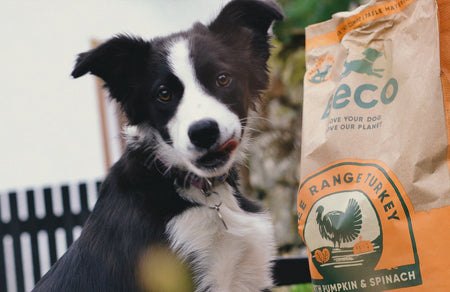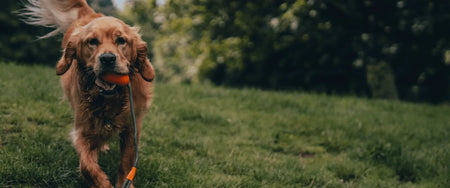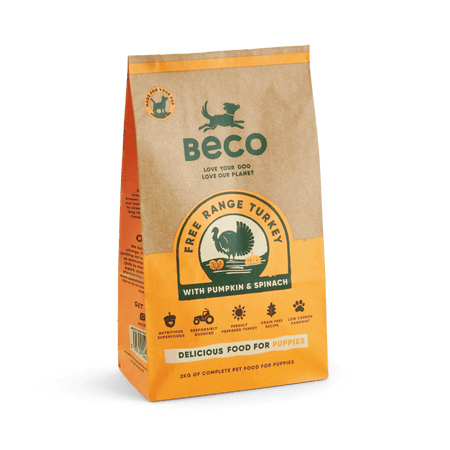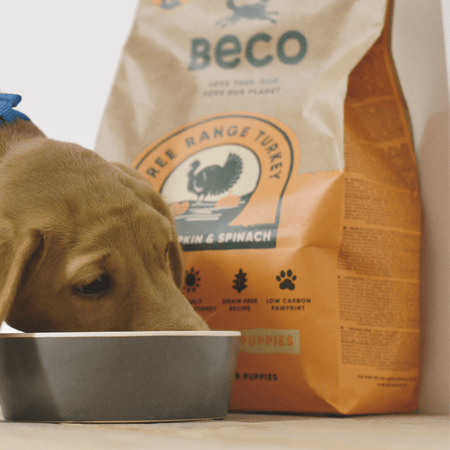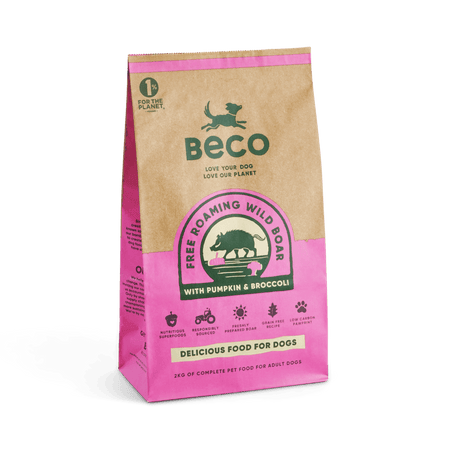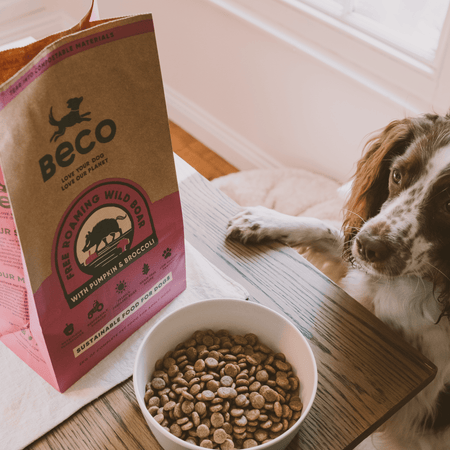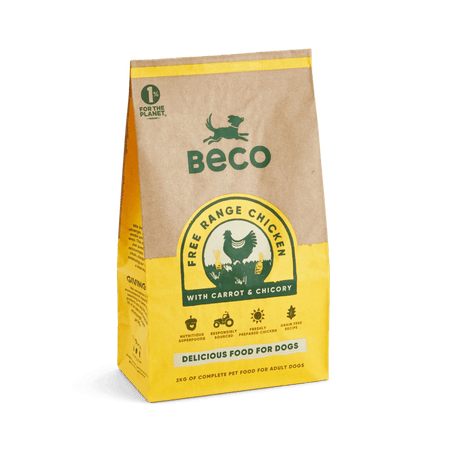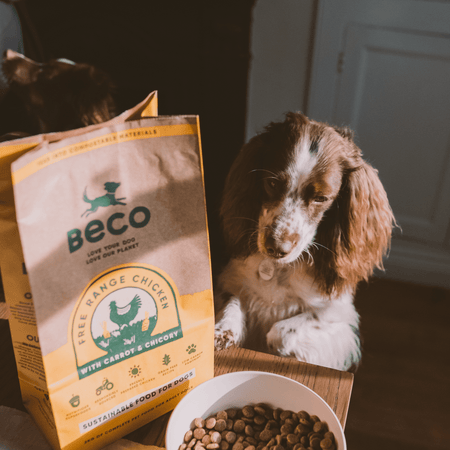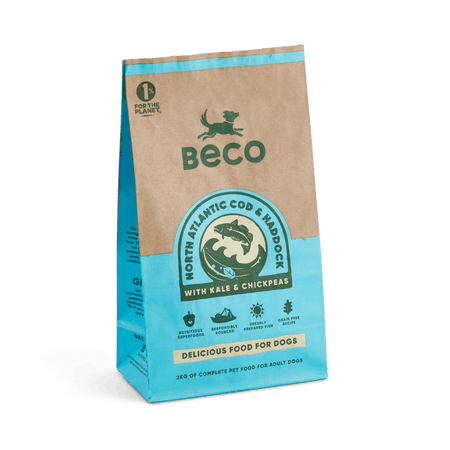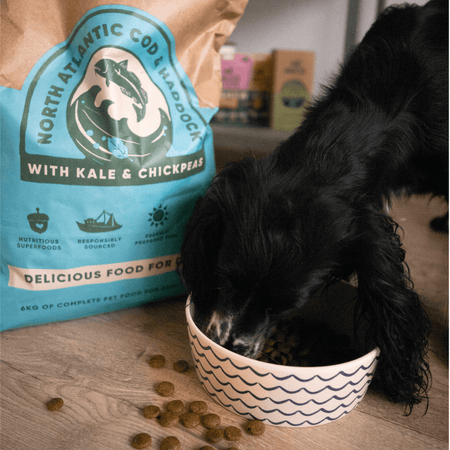Preparing to welcome a new puppy into your home can be an overwhelming as well as an exciting time.
Given just how much a pet parents needs to do before their pup arrives, this isn’t all that surprising. From puppy-proofing the house, to getting the right sort of toys – the list can feel endless.
More often than not, however, it is navigating the complicated world of puppy nutrition that causes the most worry for new owners. Big foodie trends, passed on from humans to dogs, such as gluten-free, raw, vegan, only seem to make matters worse. If that’s you and you’re wondering: “is grain-free food good or bad for puppies?” then read on. Because, when it comes to grain-free food for puppies, we’ve got all the answers.
What is grain-free dog food?
If a dog food is labelled “grain-free”, this means it is made without any grains. This includes grains containing gluten, such as wheat, spelt, durum, bulgur wheat, barley, rye, triticale, and oats. It also means no gluten-free grains, such as corn, millet, rice, and sorghum.
To replace these cereals, grain-free dog foods often use potatoes, which is an example of grain-free and gluten-free carbohydrate.
Do puppies need grain in their food?
The short answer is no; whilst puppies can derive needed energy from a grain-based diet, they can do just as well on a high-quality grain-free diet, too, provided that it’s been carefully formulated.
What’s more, some puppies might display natural intolerances towards grains, in which case, a grain-free diet is unsurprisingly the way to go. If you’re in any doubt, however, as to whether your puppy’s diet is appropriate, then get in touch with your local vet.
Is grain-free good or bad for puppies?
Grain-free food can be a healthy choice for both puppies and dogs. Provided the grain-free food is nutritionally balanced, of high-quality and meets the specific dietary needs of puppies, then it can be a safe and healthy puppy food choice.
However, it’s important to remember that not all grain-free food is created equal. Some will contain healthy vegetables and potatoes in place of grains. Other “grain-free” brands, however, will use cheap, artificial fillers, which are much less healthy than foods containing wholegrains.
One point experts might lean to when looking at the whether or not grain free is bad for puppies, is that grains are high in fibre.
Potentially being on a grain free diet, might indicate that your puppy doesn't eat enough fibre and will end up feeling less full after their meal.
This might result in their parents feeding them more than they might require, which could cause excess fat to build up.
Once again, this is very dependant on the type of nutrients within their grain free diet. For example, by including ingredients like pumpkin which is naturally high in fibre, it makes up for any fibre - grain was going to provide in their diet.

Does your puppy have a gluten allergy and require hypoallergenic food?
Choosing whether or not to put a pup on a grain-free diet is generally up to the owner. This is not the case for those dogs with gluten allergies – they will have to make the transition to allergen-free foods, such as those available on a grain-free diet. While it is rare for puppies and dogs to suffer with a gluten intolerance, it does happen and needs to be taken seriously.
Unfortunately, there is no long-term cure or treatment for these allergies. However, keeping your puppy or dog on a gluten and grain-free diet permanently is an effective way of managing this condition.
Signs of a gluten or grain intolerance in your puppy include:
Unhealthy looking poop. This might include diarrhoea, or blood and mucus in their stools.
Vomiting.
Evidence of sensitive skin, such as sores, rashes, or inflamed and red skin
Excessive itchiness, chewing or licking of body parts
A dull or unhealthy-looking coat, which is down to nutritional deficiencies.
Bald patches or hair loss, due to scratching.
These early months are vital for your puppy and any big dietary changes can have a significant impact on their health. So, before you start excluding gluten – or anything else – from your puppy’s diet, it is best to visit a vet first.
A vet will perform a physical examination on your dog. If they think it’s necessary, they will also blood work to rule out other underlying illnesses.
A vet will also give you nutritional advice and support as you make this transition.
Puppy nutrition: 4 points to remember
Puppies grow an impressive 20 times faster than adult dogs. As a result, they require a specially formulated diet to meet their nutritional needs.
Puppies should eat between four and six small meals a day up until the age of 6 months, after which they can eat two larger meals per day. This is because puppies have small stomachs. If they overeat (which puppies and dogs have a tendency to do), they can get stomach complaints including diarrhoea.
When it comes to choosing grain-free or regular food for your puppy, there is no right answer. Provided you are feeding your puppy a healthy and nutritionally balanced diet, you can choose whether to stick to regular dog food or go grain-free.
Although rare, puppies can suffer from gluten and grain intolerances. If your puppy is found to be intolerant to grains (which a vet and exclusion diet will help confirm), they will need to stick to a grain-free diet forever.
